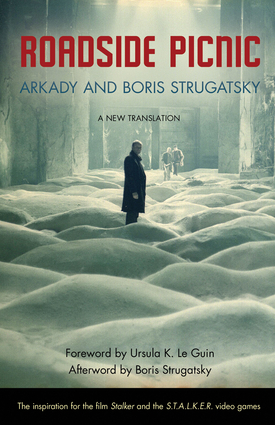Overview
"The story is carried out with a controlled fierceness that doesn't waver for a minute." —Kirkus Reviews
Red Schuhart is a stalker, a young rebel who is compelled, despite extreme danger, to venture illegally into the Zone to collect mysterious alien artifacts. His life is dominated by the place and the thriving black market in alien products. But when he and his friend Kirill go into the Zone together, something goes terribly wrong. The news Red receives from his girlfriend upon his return makes it inevitable that he'll keep going back to the Zone, again and again, until he finds the answer to all his problems. Back in print after 30 years, this brand new translation of a science-fiction classic has been supplemented with a foreword by Ursula K. Le Guin and a new afterword by Boris Strugatsky that explains the strange history of its original publication in Russia.
Reviews
"[A] vivid new translation... it has survived triumphantly as a classic." —Publishers Weekly
"The story is carried out with a controlled fierceness that doesn't waver for a minute." —Kirkus Reviews
"Brilliantly and beautifully written . . . a truly superb work of science fiction." —Infinity Plus
"Lively, racy, and likable . . . complex in event, imaginative in detail, ethically and intellectually sophisticated." —Ursula K. Le Guin
"Amazing. . . . The Strugatskys' deft and supple handling of loyalty and greed, of friendship and love, of despair and frustration and loneliness [produces] a truly superb tale. . . . You won't forget it." —Theodore Sturgeon
"No doubt: a powerful, classic work of science fiction. Certainly recommended." —The Complete Review
"If you're going to read just one Soviet-era Russian science fiction novel, it should be Arkady and Boris Strugatsky's dark, ambiguous Roadside Picnic." —io9
"The Strugatskys' worldview remains both uniquely cutting and replete with humanity . . . The characters' conflicted views of their troubled world make for a read that still feels fresh today. It's also a book that's bound to make you feel a little less sure of humanity's place in the universe." —Discover


